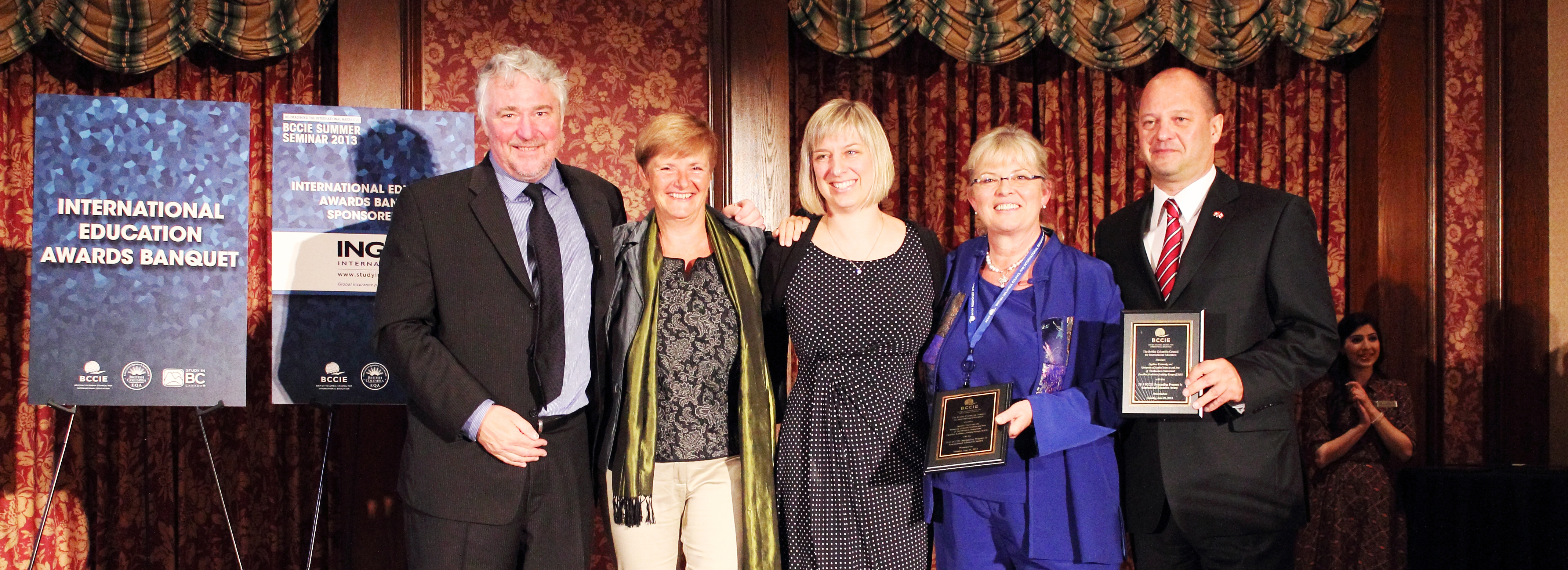BCCIE turns 25: An interview with Catherine Vertesi
In honour of BCCIE’s 25th anniversary, Catherine Vertesi, past BCCIE Board Member and former Vice-President, International, External Relations and New Initiatives at Capilano University, shares her thoughts on how International Education in BC has evolved.
BCCIE: What made you decide on a career International Education?
CV: Early in my career, I worked at the University of British Columbia (UBC) Sauder School of Business as the Director of Undergraduate Programs. I had travelled at 23 for nine months, all around Europe, and it totally changed my world outlook. I thought that if you had a class of seven students, and only one who has studied abroad, that one is more educated than the others. For me it was all about really improving someone’s education.
I told myself “Here is a 21-year-old, and if they go to spend a semester in Germany, it will change the way they see everything and it will mature them.”
I then moved to the MBA office, where we were pioneers in setting up exchanges in Canada. I was the first person to send someone on exchange there in 1985. I want to stress how hard it was in our individual institutions to get international off the ground. The general movement of students had not taken off yet.
We all relied on BCCIE for meeting other people who cared about the same things that we did. BCCIE was the one place you could talk about your value system and looking after students and integrating them where people listened because they cared about those values too. BCCIE gave us a safe place to talk about the things we cared about, and this improved our practice.
BCCIE: What were some of the biggest challenges?
CV: Initially the biggest challenge was dealing with transfer credit. It was difficult to convince faculty that a university they may have never heard of could be a good match for a student – that the course is not exactly the same as back home, but the student could still receive credit for it. I worked to make sure no student was ever disadvantaged through their study abroad experience.
Another challenge was how to engage faculty in international programming. I started an initiative to connect international students and faculty through a student buddy program. Faculty became more aware of International Education and their similarities with international students. Those students turned out to be a good resource for them in the classroom.
BCCIE: What does BC do exceptionally well?
CV: BC has always understood the importance of high-quality professional practice in this field.
The real difference in BC is that we work collaboratively. That is what we do better than anywhere else. Canadians, not only British Columbians, do a good job at International Education because we are so diverse. We are used to multicultural societies. Are we perfect at this? No. But we are pretty good. We have a history of accepting all kinds of refugees, and we concentrate on what newcomers are trying to say, rather than how they are saying it. Canadians can very easily operate in an international environment, and without judgment.
The other really important thing that happened was the emergence and leadership of the intercultural education community here in BC – people like Mackie Chase, and the Centre for Intercultural Communications. There was the understanding that you could not just drop people in a new culture without support. BC, and BCCIE, learned this lesson early on.
BCCIE: How can BC send more students abroad?
CV: Involve students at a younger age, i.e., high school, and help them feel competent and safe exploring new cultures.
It is also important to engage parents. Some families and cultures are more reluctant to send their children on study abroad. You have to be clever – start a short-term program, e.g., summer school. I did this at UBC, and out of 100 students who went abroad over the summer, about 20 returned to complete a full semester overseas, a high turnaround rate. I ran sessions for parents. We had all kinds of tricks. But yes, sending students from an earlier age helps them overcome xenophobia. Travel comes at the right time. Real transformation can take place in a short time.
BCCIE: How have you seen BCCIE change through the years?
CV: The Summer Seminar conference is getting better and better. It has really matured into an event that offers something for everyone – even practitioners who have been in the field a long time.
Our relationship with government is also much more sophisticated. We have demonstrated to government our value-add and why international specialists are needed. Intercultural quagmire can be a real disaster for organizations. The support from BCCIE and some of the missions have been incredibly valuable.
BCCIE: Where do you think International Education in BC is headed?
CV: I think we need to give increased support to Canadians – to get more Canadians abroad. Transfer credit was an issue that we have mainly solved. Now money is holding students back. What I have seen is this increasing number of students who take six years or more to do their degrees because they have to work, and more than just a few hours per week.
This means more short-term study abroad programming, but also helping employers understand how important it is to let students go for a period of time to travel. It is also hard for people with aging parents, kids, and other non-traditional students, to take part in these opportunities; the sector has to grow to serve this population. I would like to see the development of specialized programs for these types of students. I would also like to see more programs that reward interactions between host Canadian students and international students.
Finally, I believe that we will be able to draw students into BC from more regions. At Capilano, 5 years ago we had students from 55 countries. Now we have students from 99.



